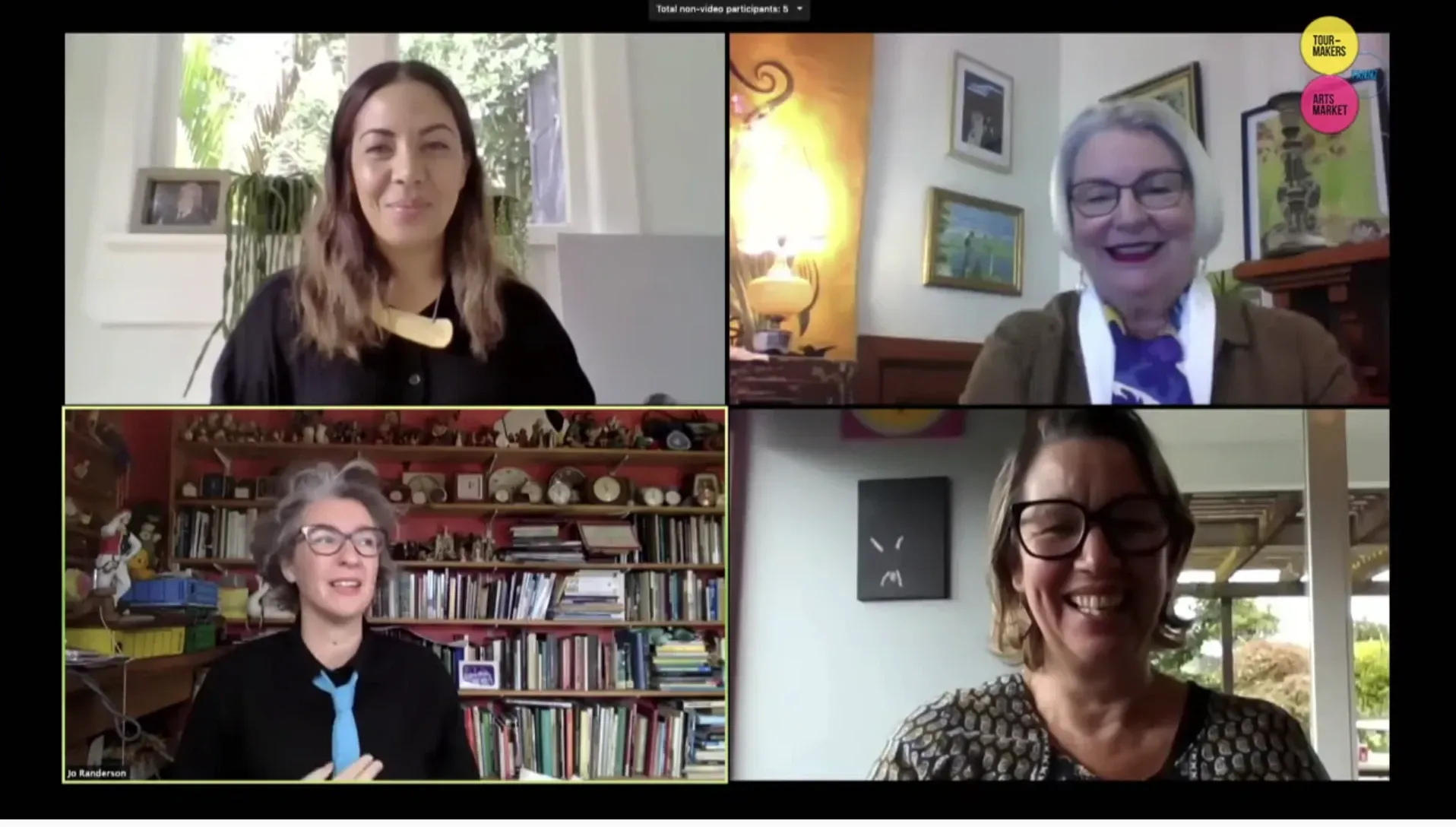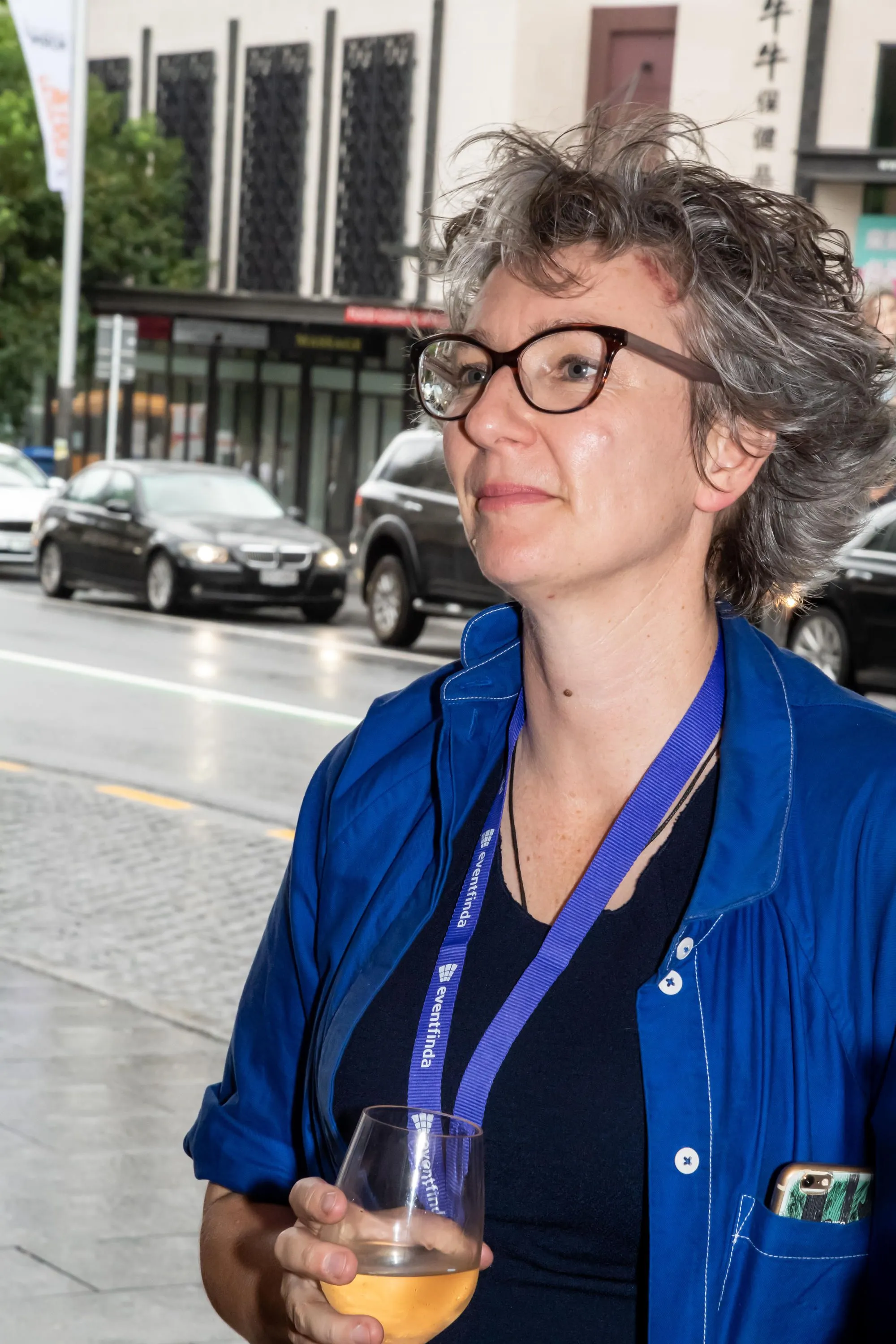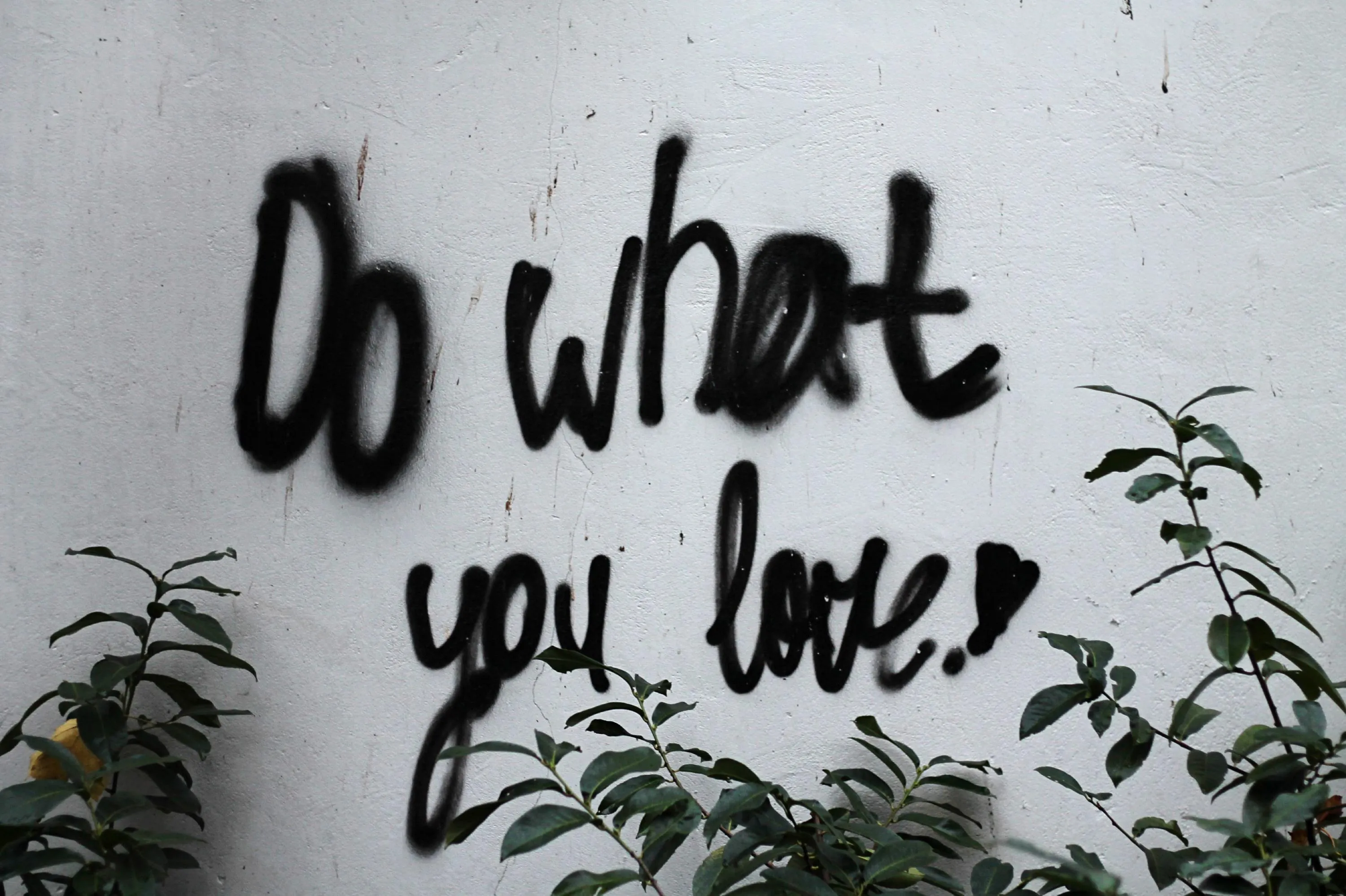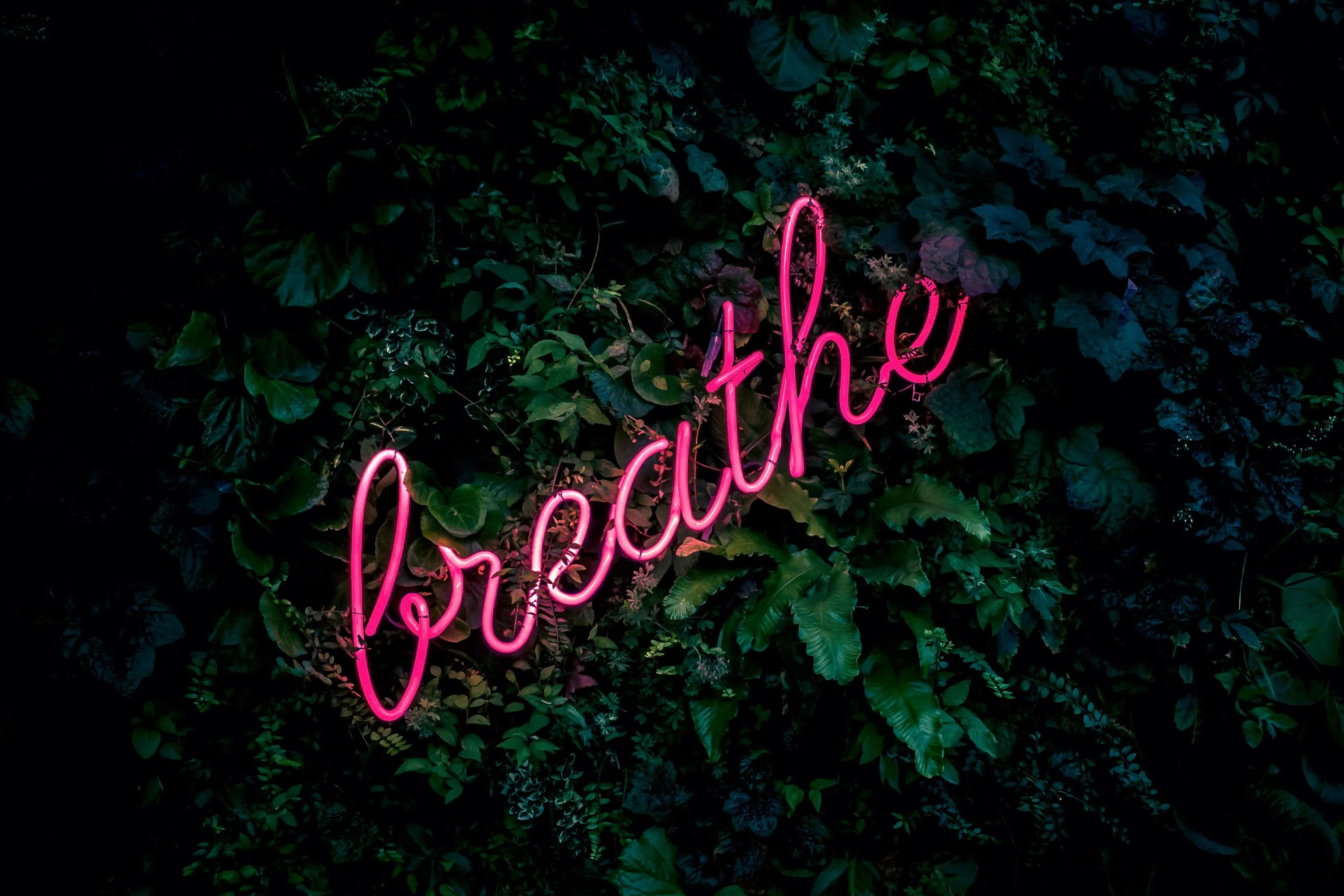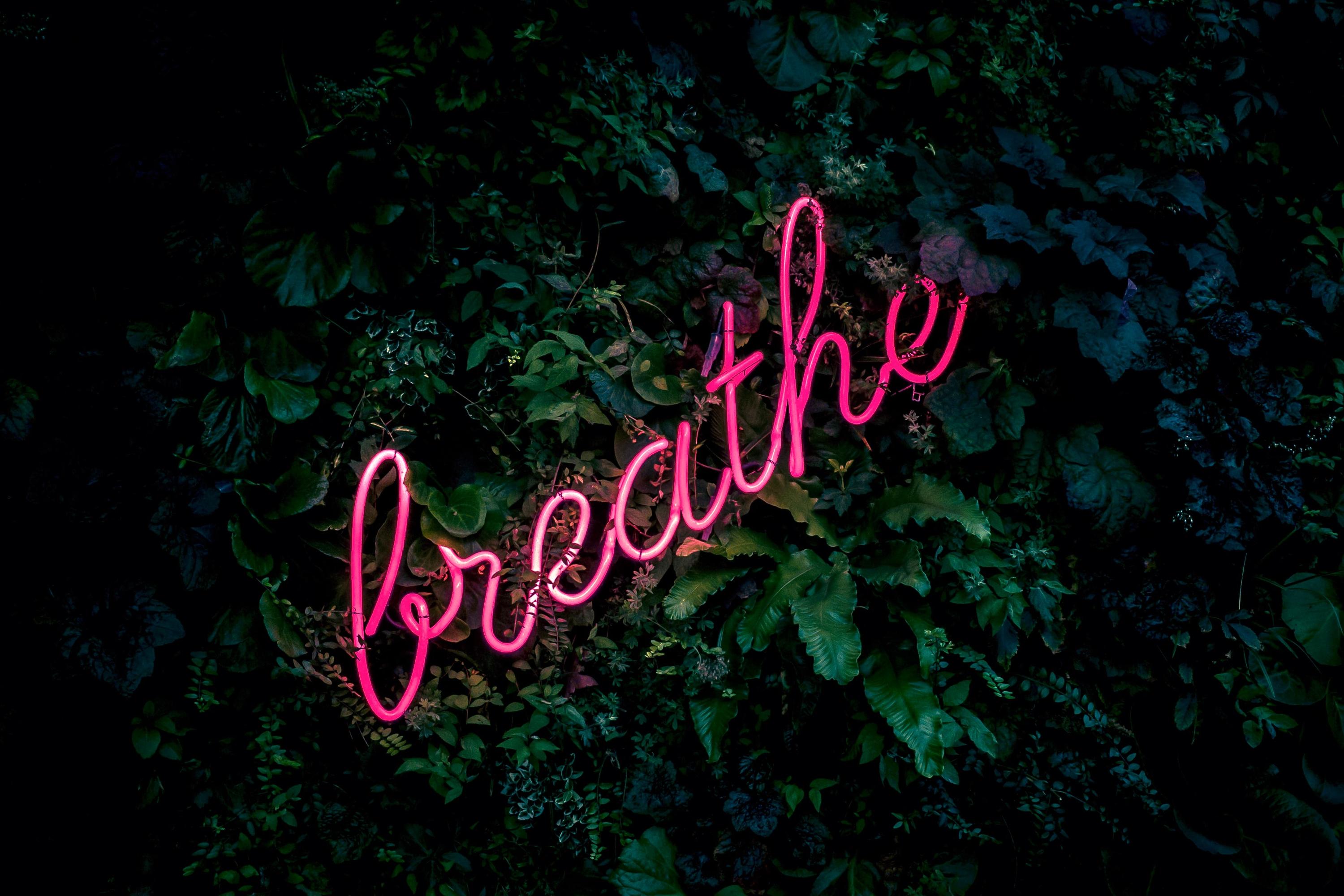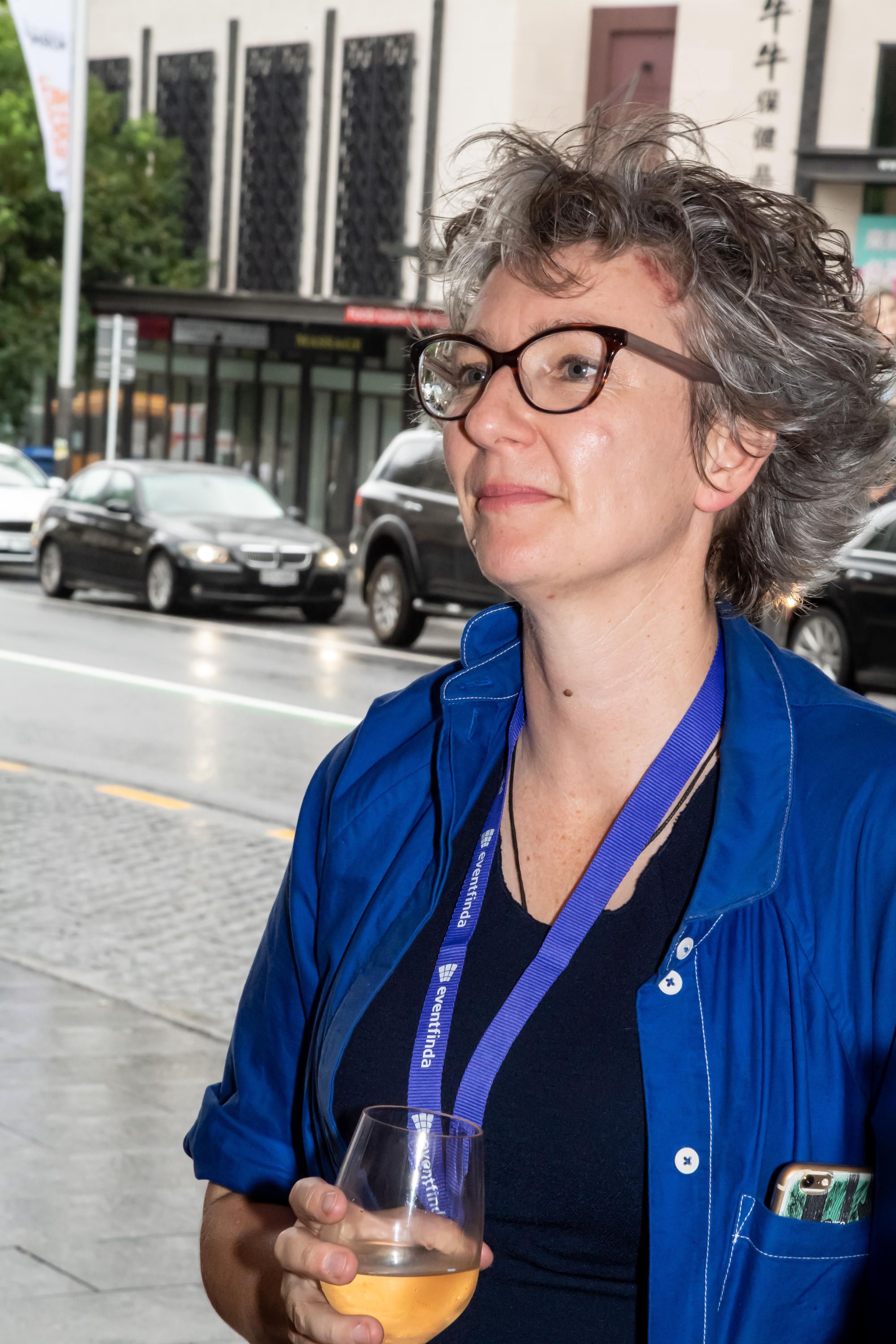What You Need to Know: PANNZ Online Hui
Written by
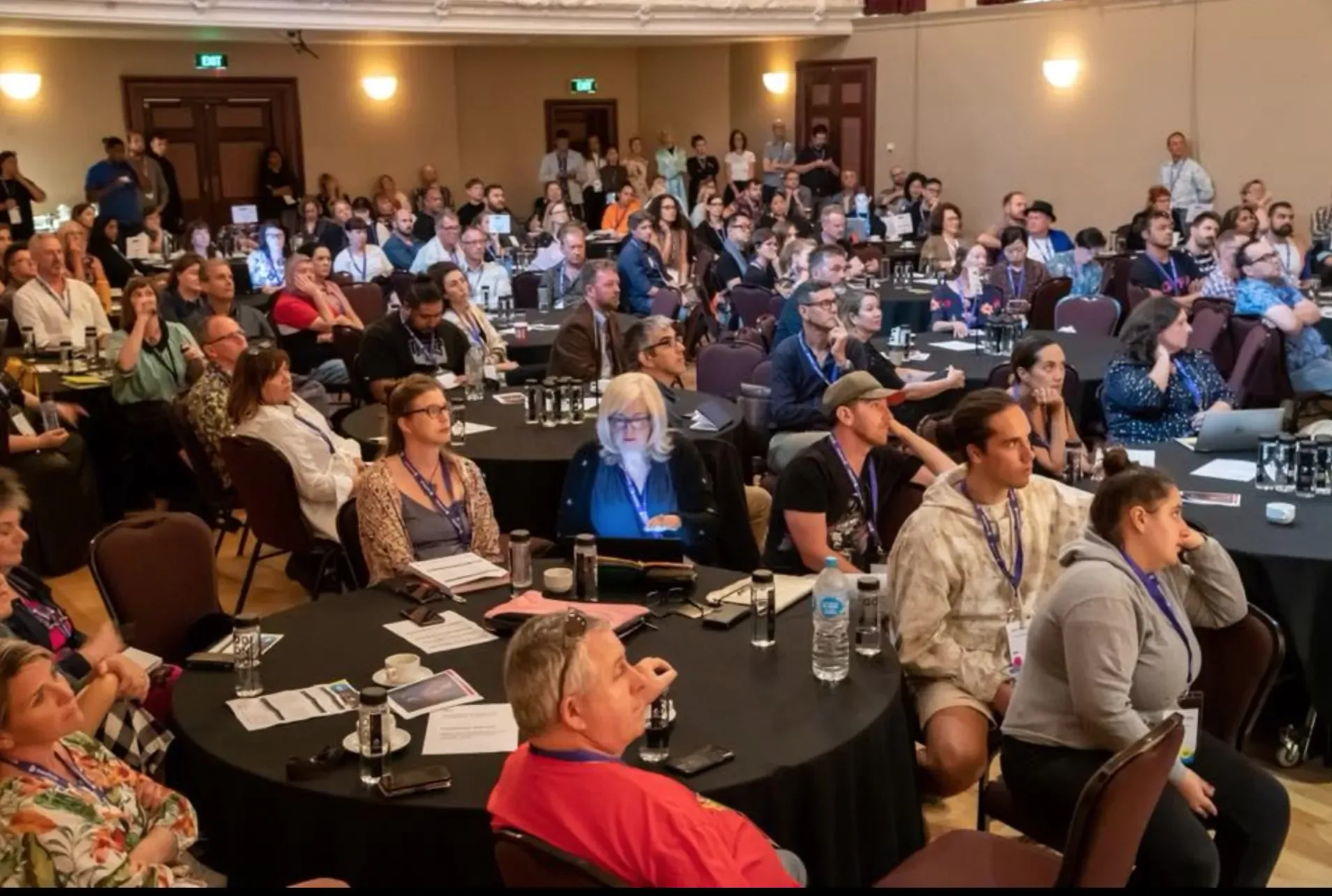
If this is a sign of the new normal, the arts community in Aotearoa is in a good space.
The crippling uncertainty that felt like it stopped the industry in New Zealand dead in its tracks just a few weeks ago has been replaced by a more calm, collective strength and resilience.
The financial implications of the COVID-19 pandemic are absolutely still dire for so many, and the loss of income and loss of creative fulfilment will be felt for a long time to come. But rather than retreat into our respective shells, the sector is regrouping and instead of asking helplessly “what do we do now?”, appears to be posing the question “what do we want our future to look like?”
Live and Online
The first Performing Arts Network of New Zealand (PANNZ) online hui is a prime example of where the arts community is currently, and where it’s heading. Along with social media groups like AA(e)-C(19)C - Aotearoa Arts and Events during the COVID-19 Crisis and Mana Moana Creatives, Monday’s live-streamed conversation between a quartet of knowledgeable and passionate arts advocates - all from inside their own home bubbles - was built on an openness and willingness to work together and share resources. Not just now, but into the future.
There was plenty of ground covered from several different perspectives; Cat Ruka, the artistic director for Tempo Dance Festival, represented indigenous creatives and spoke from an emotional viewpoint as an artist; Megan Peacock-Coyle, the PANNZ Chair and manager of Toitoi - Hawke’s Bay Arts and Events Centre talked eloquently on behalf of venues and organisations around the country, all enthusiastically moderated by Jo Randerson of Barbarian Productions.
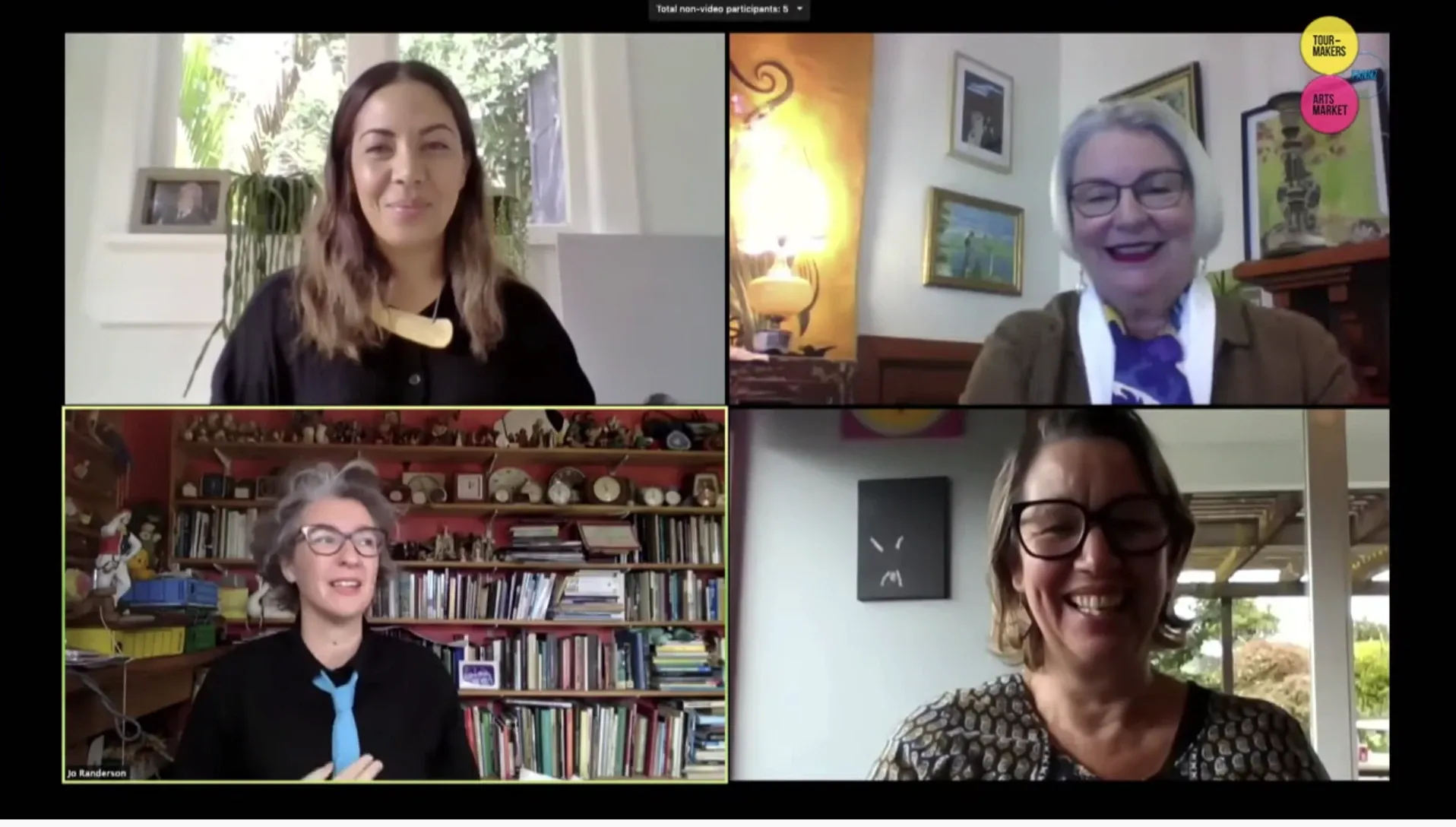
PANNZ panel in action. Photo: Youtube
Creative NZ in Spotlight
But the spotlight inevitably fell to Creative New Zealand, who has been at the frontline, dealing with those hardest hit in the arts world; receiving both accolades for their swift response and Emergency Response Package as well as an avalanche of anxiety and questions, as people understandably struggle to work out how to cope with the current and future climate.
Through it all, they haven’t shirked being part of the conversation. Cath Cardiff, CNZ’s Senior Manager Arts Development Services did an outstanding job of presenting a composed, informed, empathetic and relatable perspective, fielding the bulk of the questions from the online participants in the PANNZ hui. It certainly helps that Cardiff is more than just an administrator - her history as a dancer, choreographer, producer, director means she could speak from a deeper context.
"It’s not an easy thing to change the ship halfway through, but change we must and change we did.”
As well as guiding people on how to find the right answers on the CNZ website and discussing the new Frequently Asked Questions section, Cardiff offered an insight into how this disruption affects everyone. She recalled how a week ago she “sat in an emergency meeting in CNZ and outlined to all our leaders the situation that we had 24 funding programs open, 14 of them were in assessment, 500 applications and of that, the overwhelming percentage would not be able to be pursued under a lockdown circumstance.
“In order for us to respond to these extraordinary times, we need to do a very hard thing which is to stop doing what we were doing. I know that’s very difficult for a lot of people, including people inside our organisation. It’s not an easy thing to change the ship halfway through, but change we must and change we did.”
Key Information Explained
There was a real clarity around the WINZ wage subsidy. Cardiff not only encouraged everyone eligible to apply for it but also outlined that having done so (applied for the WINZ support) could be a prerequisite for the CNZ Emergency funding. “It’s actually really simple, they’re not asking for a lot of information. It’s a very high trust situation, and it’s the quickest way to get emergency relief at this stage,” Cardiff reassured those watching.
"nobody can predict what that future is going to be, including us."
There was a clear and simple message - look at the CNZ website for the COVID-19 response information, if you still can’t find what you need, email covid19response@creativenz.govt.nz.
The spoken form of the hui allowed for some crucial facts to be delivered clearly; the CNZ funding won’t be opening until 14 April, and the announced $16 million package focuses directly on the short term period until the end of June (the end of their financial year), where CNZ will reassess what funding programs come next.
Cardiff used CNZ’s experience with supporting artists and organisations during the Christchurch earthquakes and immediately after as an example. “We had a first phase which was about an emergency immediate response and then a second phase which was about new ways of working and the new reality.” She reiterated their focus is on the projects and organisations directly affected now. “Don’t feel like you have to get everything in now because nobody can predict what that future is going to be, including us. But we will be responding to the next lot of scenarios which will inevitably arise.”
Photo: Fabian Moller on Unsplash
Wise Words
Taking a breath became a theme of this hui. While there was plenty of practical advice from CNZ, there were some important messages for those still processing the whirlwind of emotions the past fortnight have brought. Ruka hits the nail on the head when she states “creativity, for us, is our wellbeing, it is where we go to feel safe.”
Ruka went on to emphasise the positive to take out of the lockdown was to slow down. “I think what the (COVID-19) situation has done is give some urgency to a conversation that we’ve needed to have. I think that personally as a leader within the dance sector, I have allowed this new normal to impact on all of the assumptions that I hold internally... and observing the process of things crumbling - my assumptions, my passions, my ways of thinking. Through inviting that paradigm shift in, my personal approach to things is allowing me to see new ways forward.
“I’m starting to think about productivity. I think in the arts sector, we have become so used to being overachievers, to being hyper-productive all of the time and I think this new normal has let me see that we don’t actually have to be productive all of the time. We can settle into approaching life a bit more gently.”
“creativity, for us, is our wellbeing, it is where we go to feel safe.”
Peacock-Coyle posed plenty of food for thought on the future of the arts. “I think it’s incredibly important that we’re open to change.
“I think it would be an opportunity lost if we did just want to go back to the way it was before. I think this is an opportunity... It’s all going to change and hopefully for the good.”
Jo Randerson moderates the weekly online hui. Photo: Supplied
Domino Effect
As a member of the Entertainment Venues Association of New Zealand (EVANZ) executive board, Peacock-Boyle highlighted the plight of the 120 member venues nationwide, as well as the technical industry that makes the events possible. Backing the artists is not enough if there’s nowhere for them to perform in the future. “Post-pandemic, how do we re-engage our audiences? How do we look at incentives to ensure we get these audiences coming back? How do we make sure the artists in New Zealand are being supported by venues to have that work coming back.”
She floated the ideas of paying artists in local communities to put on free shows to get the audiences coming back in and a nationwide concert, post-pandemic, to thank the essential workers and engage them again in live entertainment.
“Post-pandemic, how do we re-engage our audiences?"
The conversation ranged from intricacies of the CNZ model, to the concern about the impact on contractors, where to get the financial statistics, and even lobbying TV channels to include more coverage of the plight of the arts during COVID-19 (Cardiff revealed an advocacy plan was underway within CNZ on the topic and hoped that “next week we’ll see something really positive come out.”)
There was an acknowledgement that future hui had to offer up different insights, which will hopefully see a representation of other elements of the arts sector away from the performing arts, as well as related sectors who can help in areas like public health (regarding the long term impact on public gatherings) and the digital sphere. If you have suggestions, send them to info@pannz.org.nz.
“This is such an uncertain time,” Peacock-Coyle said. “We don’t know how long it’s going to last or how long it will take us to get on our feet, but as long as we keep connecting and talking, we can all support each other.”
As Randerson succinctly put it, “We have our creativity, and we are able to solve some of the problems that are around us.” With the unity being shown by the arts community and the influx of resources and support networks popping up, there is hope that something good could come out of these dark days yet.
You can watch a replay of the PANNZ online hui here - there will be weekly live-streams at 11am on Mondays. Also check in with the AA(e)-C(19)C - Aotearoa Arts and Events during the COVID-19 Crisis Facebook Page for their Learning Lunches starting 2 April and for other upcoming live-stream opportunities.
